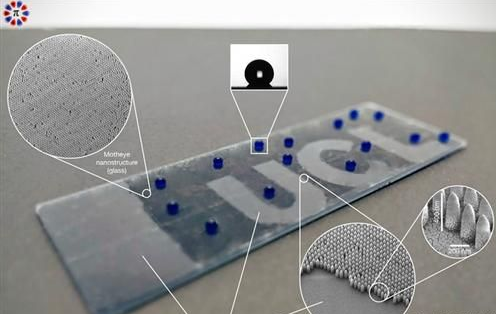
Privacy statement: Your privacy is very important to Us. Our company promises not to disclose your personal information to any external company with out your explicit permission.
Optimizing the driver's vision is an important issue to improve vehicle safety. Although today's cars are beginning to rely more and more on electronic systems such as stereo cameras, lidars, and infrared systems, the key to optimizing vision is still the clean windows, so drivers can see what's going on outside the car.
This article refers to the address: http://
Now, researchers at a university in the UK have introduced a “smart” glass solution for building windows that may also be suitable for vehicle windows. This glass uses nanotechnology, which not only enables automatic cleaning, but also has the attributes of energy saving, environmental protection and anti-glare.
“This is the first combination of nanostructures and thermochromic coatings,” said Dr. Ioannis Papakonstantinou, Department of Electrical and Electronic Engineering at University College London (UCL University). “This biomimetic nanostructure enhances glass coating. The layer's temperature-sensitive color properties provide a high-performance smart window that enables automatic cleaning."

(UCL University's "smart glass" solution prototype. The darker areas in the picture use nanostructures, which are water-repellent, can force water to form nearly spherical water droplets, and flow through the glass quickly. The UCL word area in the figure is not special. Processing, we can notice that the reflection in this area is much stronger.)
As the project director of the team of senior experts, Papakonstantinou said that the initial application of this nanostructure is the exterior window of skyscrapers, but he also believes that this technology can be used as long as it meets the safety standards and other regulations of the automotive industry. On the road car.
“We should extend the application of this technology to the automotive sector. It is easy, just apply a layer of coating of about 1 mm. Of course, we definitely have to set up a test project, such as observing water droplets flowing down the window. The speed of the glass is very important, especially for the front windshield."
UCL University's research work is funded by the Engineering and Physical Sciences Research Council. It is said that the structure can indeed show three excellent properties.
Specifically, when rainwater contacts the surface of the nanoglass, water droplets are formed, and then dust, dirt and the like are taken away during the flow of the glass, which is the principle of the automatic cleaning function. Papakonstantinou explained: “This is mainly due to the fact that the nanostructures on the glass have a conical design like a pencil tip that can store air, thus greatly reducing the contact of the liquid with the glass surface.”
Unlike this new type of glass, when raindrops fall on conventional glass, they typically stay on the surface of the glass for a period of time before they fall off and leave a mark.
In order to achieve energy savings, the surface of the glass is also coated with a 5 to 10 nm thick film of vanadium dioxide (a cheap and abundant material), which reduces heat loss and reduces injection into the car in hot weather. Solar radiation.
"This nanostructure also has anti-glare properties, which are more common in moths or other creatures that are good at avoiding predators." Papakonstantinou pointed out, "This new glass can control indoor reflected light within 5%. The average performance of other vanadium dioxide film energy-saving windows is 20%-30%."
He stressed that the current findings of UCL University are still in the research stage, and the next major task is to optimize nano-manufacturing technology and vanadium dioxide coating process to support large-scale production. Currently, Papakonstantinou has finalized 1.8 million euros from the European Research Council to achieve this goal.
In addition, UCL University team members include Ivan Parkin, a professor of chemistry at the school, and Alaric Taylor, a researcher in the Department of Electrical and Electronic Engineering.
September 10, 2024
August 16, 2024
Wyślij je do tym dostawcy
September 10, 2024
August 16, 2024
April 15, 2021

Privacy statement: Your privacy is very important to Us. Our company promises not to disclose your personal information to any external company with out your explicit permission.

Fill in more information so that we can get in touch with you faster
Privacy statement: Your privacy is very important to Us. Our company promises not to disclose your personal information to any external company with out your explicit permission.